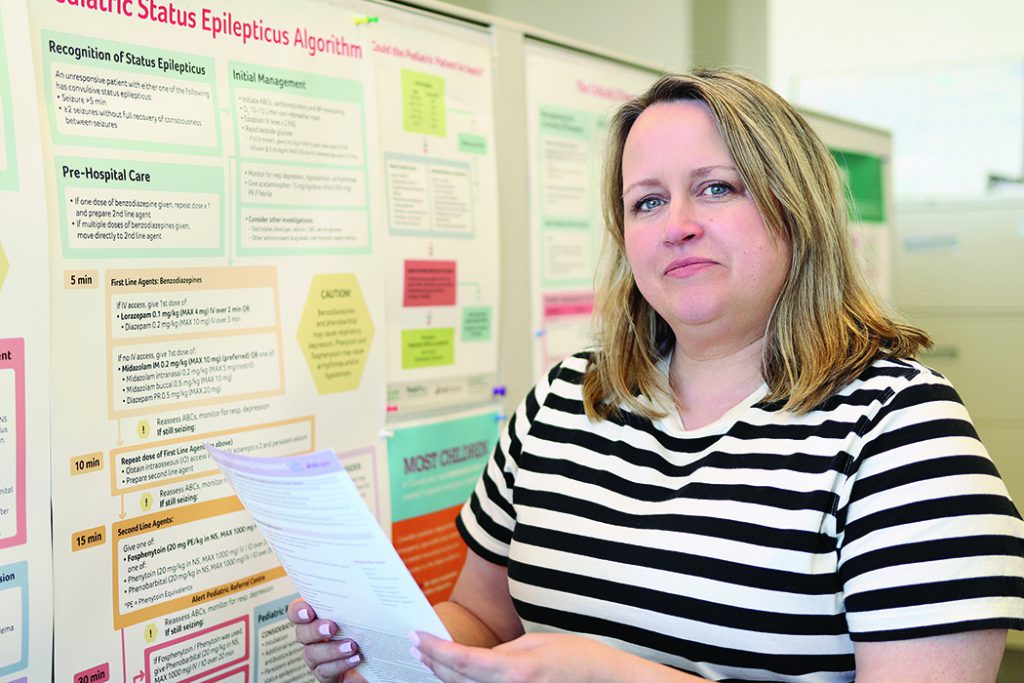
For most of her early career after graduating from UM as a nurse, Dr. Lisa Knisley [BN/94] cared for adult patients. But in 2000, she was working in a cardiac catheter lab in London, England, that served both adults and children.
“It was the first time I provided care to children, and it was quite frightening because I had no pediatric training,” she remembers.
That experience guided her to an interest in children’s health research, a master’s degree in journalism from the University of Westminster in England, and eventually a PhD in nursing from the University of Alberta.
“Communication was a bit of an unusual track,” she says. “But it led to my research focus on improving how we create and share child health information.”
Knisley’s passion for clear, meaningful health communication partially stems from her teenage years, when her father spent six years in care facilities following a brain tumour and stroke.
“I know what it’s like to be a family member of a loved one in hospital, and how information can help or hinder care.”
The Winnipeg-born Knisley started her nursing career in U.S. hospitals before working in England for 15 years. When she and her family returned to Manitoba in 2012, she became the first executive director of Translating Emergency Knowledge for Kids (TREKK).
TREKK is a national network hosted at UM and the Children’s Hospital Research Institute of Manitoba (CHRIM). It provides accessible, evidence-informed information for emergency health-care providers and families caring for acutely ill or injured children.
One of TREKK’s goals is to ensure that emergency teams anywhere in Canada can quickly access online pediatric knowledge.
“We want to meet a child’s immediate needs, whether they’re brought to a state-of-the-art children’s hospital or a remote nursing station,” Knisley says.
Knisley joined the College of Nursing as an assistant professor in early 2024, but still works closely with TREKK as a co-director and researcher. She is also a researcher with CHRIM.
In 2018, TREKK was approached by the Manitoba Métis Federation to partner in adapting TREKK parent resources for Red River Métis families.
That led to Knisley’s PhD research on how to culturally adapt child health resources. One paper resulting from her research was published in 2023 in the International Journal for Equity in Health. Knisley interviewed 19 Red River Métis parents and Elders about seeking health information when a child is acutely ill.
“One of our findings was that families would prefer health information that better reflects their lives and helps to revitalize Métis culture,” Knisley says.
“Parents suggested incorporating Métis languages. They also wanted information on how to access Elders, healers and traditional medicines.”
Another suggestion was to depict, in illustrations, more variety in living situations and in the ages of children’s caregivers. “We have lots of blended families and aunties and uncles taking care of the kids, too,” one mother commented.
The health-care system has a responsibility to provide accessible, culturally appropriate communication materials created with patients and their families, Knisley says.
“Effective health communication is not generic. Families are more likely to engage if they recognize themselves in the resources we provide, and if we respectfully answer questions specific to their cultural context.”
BY ALAN MACKENZIE
